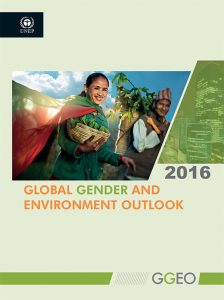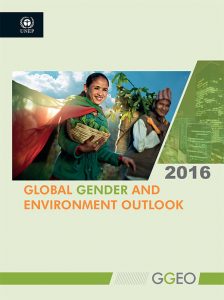Málþing um mat Umhverfisstofnunar Sameinuðu þjóðanna á stöðu kynjanna verður haldið mánudaginn 24. apríl, í stofu 101 í Odda frá kl. 12.00-13.30, í samvinnu RIKK – Rannsóknastofnunar í jafnréttisfræðum, Jafnréttisskóla Háskóla Sameinuðu þjóðanna og námsbrautar í umhverfis- og auðlindafræðum við Háskóla Íslands.
Þátttakendur í málþinginu eru Joni Seager, prófessor og forstöðumaður deildar hnattrænna fræða við Bentley-háskóla, Auður H. Ingólfsdóttir, lektor við félagsvísindadeild Háskólans á Bifröst og fundarstjóri er Lára Jóhannsdóttir, lektor í umhverfis- og auðlindafræði við Viðskiptafræðideild Háskóla Íslands.
Þrátt fyrir einlægar umræður um mikilvægi kynjagreiningar á sviði umhverfismála er málefnið þó jaðarsett í umhverfismati og stefnumótun. Umhverfisstofnun Sameinuðu þjóðanna (UNEP) hefur sett af stað verkefni til að gera jafnrétti miðlægara í umhverfisverkefnum. Hluti verkefnisins var gerð alþjóðlegs umhverfismats sem byggt er á kynjagreiningu og nefnist: The Global Gender and Environment Outlook (GGEO) og kom út árið 2016. Skýrslan var meira en tvö ár í vinnslu og komu hátt í hundrað sérfræðingar að verkinu en Joni Seager er aðalhöfundur hennar. Henni er ætlað að festa jafnréttismálin í sessi innan umhverfismálaflokksins sem og setja viðmið fyrir kynjaða umhverfisgreiningu og ákvarðatöku.
Í skýrslunni er litið á stöðu og horfur er varða upplýsingar um umhverfið – eins og mismunandi áhrif umhverfisbreytinga á kynin – og einnig eru settir fram nýir greiningarrammar sem færa út mörk umhverfismats. GGEO skoðar til dæmis á hvaða hátt félagsmótun karlmennsku og kvenleika hafa áhrif á umhverfisþætti.
Í framsögu sinni mun Joni ræða helsta framlag og nýbreytni GGEO verkefnisins sem og þær hindranir sem standa í vegi fyrir því að nota kynjagreiningu við mat á umhverfisáhrifum. Auður H. Ingólfsdóttir mun í framhaldi ræða innihald GGEO í íslensku samhengi.
Málþingið fer fram á ensku, er öllum opið og gjaldfrjálst.
Finndu viðburðinn á Facebook!
Bringing Gender to the Environmental Table: UNEP’s Global Gender Assessment
A symposium on UNEP’s Global Gender Assessment will be held on 24 April, in room 101 in Oddi, from 12.00-13.30, in cooperation of UNU-GEST – United Nations University Gender Equality and Studies Programme, RIKK – Institute for Gender, Equality and Difference, and the interdisciplinary Environment and Natural Resources programme, at the University of Iceland.
Participants are Joni Seager, Professor in Global Studies at Bentley University, who is the keynote speaker, Auður H. Ingólfsdóttir, Assistant Professor at the department of Social Sciences at Bifröst University, in panel and Lára Jóhannsdóttir, Assistant Professor in Environment and Natural Resources at The Faculty of Business Administration at The University of Iceland, is the moderator.
Despite earnest rhetoric about the importance of gender analysis in the environmental realm, it is in fact sidelined in most environmental assessments and policies. In a high-visibility effort to position gender more centrally in the environmental realm, the United Nations Environment Programme committed to undertake an assessment of the global environment entirely through a gender lens: the Global Gender and Environment Outlook (GGEO) was published in 2016. GGEO, which took more than two years to complete and engaged the work of almost 100 experts, is intended as both a proof of concept and as a benchmark for gendered environmental analysis and decision-making.
GGEO examines core ‘state and trends’ information about the environment – such as the gender-differentiated impacts of environmental change – and also provides new analytical frameworks that push the boundaries of environmental assessments. For example, among other approaches, GGEO examines the ways in which social constructions of masculinity and femininity are environmental drivers.
In this talk Joni will explore the main messages and innovations of GGEO – as well as the obstacles to extending gender analysis throughout environmental assessments. After the talk, Joni and Auður H. Ingólfsdóttir will discuss the report and the Icelandic context. Lára Jóhannsdóttir will moderate the discussions.
The symposium is held in English, is open to everyone and admission is free.
The event is on Facebook!

